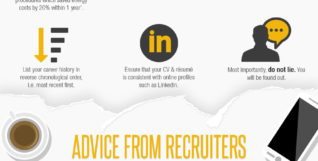
An A-Z Of SEO Terms
- October 3, 2018
- Marketing Team
SEO (or Search Engine Optimisation) is one of the biggest developments in marketing in recent years. In layman’s terms, it’s a way to improve the searchability of your company or business. If you want more people to somehow “stumble upon” your company and the goods and services it offers, you need to be optimising your searches.
But one of the biggest stumbling blocks in properly utilising SEO to grow your business is the sheer amount of jargon surrounding it. It can be overwhelming, and put people off learning one of the most important (and actually, not that difficult aspects) of growing an audience of customers. So here is a A-Z of some of the most common SEO terms.
Affiliate
An affiliate markets or sells products for another site, and gets commission for doing so.
Algorithm
The algorithm is the (usually quite complex) mathematical formula a search engine uses to rank the order of the search results. In order to appear higher on the list, applying the rules of the algorithm is key.
Anchor Text
The anchor text is the part of a text where a link is put. It’s the part you click on to go to the related page.
Backlinks
Backlinks are any links which lead to your webpage – like a link, but backwards.
Black hat
These are SEO techniques which are against Google’s practices, and can result in a lower ranking.
Bot
This is any specialised robot which searches for sites to add to a search engine’s index. Also called a spider or crawler.
Bounce rate
This is the amount of people who visit one page of your site, and then leave without clicking onto another of your site’s pages.
Contextual advertising
This is advertising linked directly to the search or site you’ve looked at. It’s designed to advertise goods and services that you actually want.
Clickbait
This is any link created with the pure purpose of attracting a lot of clicks. Clickbait is most commonly found on social media.
CMS
CMS stands for content managing system. It’s any platform through which content is published to your site – for example, Blogger or WordPress.
CPC
CPC stands for cost per click, and is (as you may imagine) the amount paid out by an advertiser per person who clicks on their ad on your page.
Domain authority
This is a score applied by the search engine to your site, grading it on how much the search engine trusts it.
Fresh content
As you may guess, this refers to any new content. Search engine’s tend to prioritise fresher over older content, particularly if I’s about a news story or trending topic.
Google is by far the leading search engine, but you already knew that, right?
Heading tags
When creating content online, items will be tagged as either a heading (H1) or subheading (H2-H6). These help search engines identify what your content is about, and rank it accordingly.
HTML
This stands for hyper text markup language, and is the code which all web pages are made from. Better HTML formatting will make a search engine rank a page more highly.
Impression
An impression is any one single page view on your site.
Indexing
The process through which a search engine gathers all of the relevant pages to any given subject, in order to then organise and rank them.
Javascript
Javascript is a computer programming language used to create interactions between web browsers.
Keyword
A keyword is a popular search term on your topic. You need to include keywords in your work in order to garner searches. A popular way to find the keywords you should be including is through the Google AdWords Tool.
Landing page
The destination of any link – where you “land” after clicking.
Link building
Creating links to your site (either from within the site or from outside sources). The aim of link building is a better SEO result.
Link partner
This refers to two sites linking back and forth with each other. Search engine’s usually give less credence to this than to non-reciprocal links, because they could be a result of collusion for better SEO.
Meta tags
These are tags within the header of the HTML code of a site which help describe what the site and page are about. They’re designed to help search engines categories your site.
Mobile optimisation
This refers to how well a site works on a mobile phone. A non-mobile friendly site can have a negative effect on search engine rankings.
Monetize
To monetize is to make money from a site. This is usually done through advertising.
Over optimisation
This is where things get a bit complicated. If a search engine believe you’re trying to “beat the system” by filling your page with keywords, for example, you site can be penalised for this by a lower ranking.
Pagerank
A pagerank is the value assigned by a search engine on the popularity and authority of a website.
RWD
This stands for responsive web design. It’s an approach based on a better viewing and interactive experience. Things like adequate font size and mobile optimisation are a part of this.
Redirect
A way of rerouting a link to a different active website.
Search engine spam
Any way of interfering with a search engine to make less relevant results appear higher. Different from optimization, which is aiming to make the relevant results appear higher.
Social signals
Search engines rely on data from social media sites like Twitter or Facebook to help with the page’s ranking.
SERP
This stands for search engine results page, and is simply the first page of results after entering a certain term in a search engine.
Trust
Trust is one of the biggest things which can affect a search engine ranking. Google in particular put a lot of their ranking behind trust. Authority and trust is at least partially gained through links from other trusted sites.
URL
This is a web page address, and stands for Uniform Resource Locator.
White hat
These are any SEO techniques which are acceptable by Google, and would not incur ranking penalties.
XML Sitemaps
These help a search engine navigate the different pages on a site. Having an XML sitemap is essential SEO practice.
You can view Marketing jobs on our job board. If you’d to speak to someone regarding your career please give us a call on 0207 269 6144.







